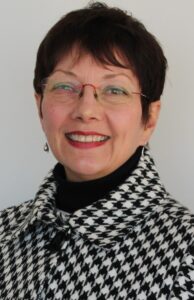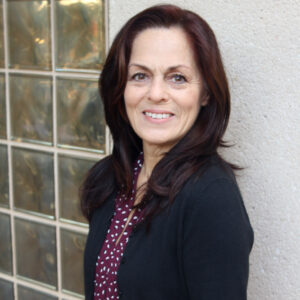Whole health focus: small changes for a better life
- April 3, 2024
- By: Libby Maness
- Our People
The first time many people hear the term “health coach,” they immediately think weight loss, going to the gym and dieting. While these are things health coaches encourage, that’s not what they are trained to do.
Through collaborative goal setting, health coaches partner with their patients to identify their goals ‑ whether it’s managing a chronic condition, reducing stress, improving nutrition or achieving weight management. The coaches guide patients in creating personalized plans, offering unwavering encouragement and providing them with strategies to overcome obstacles.

“We equip our patients with the knowledge, resources and positive partnership to support lasting change,” said Jessica Copeland, a health coach at The University of North Texas Health Science Center at Fort Worth’s HSC Health. “Our goal is to empower patients to take ownership of their health journey and achieve long-term positive transformations.”
Maricela Cabrera, another health coach at HSC Health, said that knowing how to improve your health and doing it are two very different things.

“Health coaches help patients take what they know, figure out how to put it into action and give them the confidence to take that first step,” Cabrera said.
Copeland emphasized the importance of building trust and establishing a supportive relationship as the first step in initiating change with the support of a coach.
“We let the patient take the lead in the conversation,” she explained. “They are the experts on their own lives, so we listen and understand their goals and preferred methods for achieving them. As a health coach, cultivating a sense of being seen, understood is crucial support for people as they embark on life-improving changes.”
Once the patient defines their goals and outlines their plan, the health coach becomes their empowering collaborator and accountability partner, offering ongoing support as they take each step toward a happier, healthier life.
Copeland said that one of the most important things a health coach can do is celebrate everything, even the things their patients see as failures. She explains that each outcome should be seen as part of an experiment that gets them to a better life. A “win” doesn’t have to be a scale victory or dramatic life change, it can simply be realizing something in the experiment isn’t working, and now a patient is one step closer to finding out what will work for them.
HSC’s health coaches
Copeland and Cabrera haven’t been at HSC Health long, but they are already making a difference.
When a patient signs up to work with a health coach at HSC Health, they are signing up for a three-month long program, which includes six sessions. The first session lasts an hour and is used as a time to assess, get to know the patient and gain trust. Without trust they cannot accomplish much, Copeland emphasizes.
These visits are about helping patients take charge of their own health. Whether they’re adding one new vegetable to what they eat each week, taking 1,000 steps a day or sleep in longer chunks at night, patients get to decide what they want and how they want to do it. Coaches honor the client as the expert of their own lives and encourage self discovery.
“We don’t evaluate, diagnose or prescribe,” Cabrera said. “We are strictly here to help patients navigate to the healthiest version of themselves.”
Another part of being a health coach is learning to listen beyond what the patient is saying.
“We are listening for the things they really want,” Cabrera said. “You can tell by how they say it, their body language when they say it, and sometimes it takes a bit of discussion for them to realize what is motivating them to make a change.”
Once the patient establishes what they want, the health coaches help them build a plan to a healthier life.
A whole health approach to a healthier life
Both Copeland and Cabrera emphasize that what they do epitomizes whole health.
“If a patient tells us they can’t sleep, and they sit inside all day and they are experiencing anxiety, we listen and reflect what they tell us and ask if they have talked to their provider about their anxiety,” Copeland explained.
“Having heard themselves talk about their sedentary days, the patient may then say, ‘I used to walk in the evening, maybe I can do that again two or three times a week.’ Once they take that action or discover why they stopped, they are on their way to finding what works for healthy lifestyle changes within their current life.”
Whole health is taking place within every element of a patient’s life, Copeland explains. Being a health coach is about identifying one thing and slowly working toward a lifestyle transformation.
“The magic happens when a patient finally realizes that they established what they wanted for their life and made daily choices that support them living a healthier lifestyle,” Copeland said. “Seeing them acknowledge that they are the ones who did that is a great reminder of why I do what I do.”
To schedule an appointment with a health coach in HSC Health clinics, call 817-735-2228 (Family Medicine) or 817-735-2200 (Center for Older Adults).





Social media